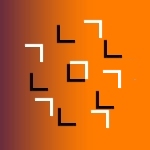
ISSN 2364-3641
Publications:
direct access:
vpl-reports.de
Open Access
| home | evaluation | archive | vpl-goettingen.de | impressum |
From libraries to open access
Until some years ago, scientific research was published exclusively in journals that had to be paid for by readers, often via institutional libraries. There were no publication fees charged from the authors (except perhaps extra charges for color figures). But whether you could read the paper depended on whether your library had bought the journal or had at least access to it via inter-library loan. If you had no access to the paper, you might have sent a reprint request to the author(s), could buy an (expensive) copy from the publisher - or simply ignore the paper.
Over the time, this (in principle successful) business model expanded, and publishers (and new editors) created new journals, many expensive because of their small readership. But libraries had not enough money to buy all these new journals. While the situation was developing badly, the internet has become increasingly important, and a new era of Open Access (OA) journals began. Papers in these OA journals were free and world-wide available. Although publishers still had to pay for making the layout, other high expenses (e.g., for journal printing and delivery) could be saved. But there were (relatively small) new costs for running a server and organizing the website pages. These costs, and often much more, were now charged from authors and thier institutions. Some publishers charge publication fees of several thousands of Euros (or US dollars) for a paper - and many authors are willing to pay it from their grants.
Publication fees
Since OA publishing has become important, also the funding in science has changed. Most projects receive financial support not only for the experimental work but also for publication costs. However, if you are running a low-budget project and do not require external financial support, you may not have the money for expensive publication fees. Shouldn't it be possible to publish an OA journal at much lower financial cost?
Formal restrictions
Some journals have formal restrictions concerning the length and format of a paper. That is often helpful and may improve the readability. But sometimes you may have a project that exceeds these restrictions. You may have looked at too many aspects of the theme or need more figures to visualize the data. A frequent way is to split the presentation into several papers, which might be stupid if all papers are virtually linked together.
In my own journal I am free to write a paper in the way and length I want.
Peer reviews
Last not least, lab reports are usually not peer-reviewed, which is a pity. But here is a different suggestion. Why cannot people who have something to add or criticize, make their comments close to the paper so that other readers can also read them? Non-public peer reviews usually remain unknown to the majority of readers.
Comments
Instead of pre-reviewing I thus suggest a post-reviewing process, in which people may comment on the papers after publication. That is a try and will require a sensible proceeding. No author wants to be bashed in the public, and neither do I. Therefore I introduce two requirements; comments must be fair, and signed by name.
That was the idea. Over nine years until now, however, I have not received any single comment and none to be published. I had also introduced a rating system for simpler evaluations, but this algorithm was misused and had to be removed (see evaluation). Thus the \quot;post-reviewing\quot; process did not work so far.
But while comments are always welcome, the main reason for establishing this website was not primarily to establish a new reviewing procedure but to create a cheap publication site.
Distribution
Despite the many advantages of running an own lab journal, there is a major disadvantage, the possibility that papers may be overlooked. Unfortunately, vpl-reports.de papers are not listed in all scientific indexes, but I trust on search engines and on spoken information. So, please, tell your students and colleagues if you think a certain paper in vpl-reports might be interesting or important for them. As long it is for personal and non-commercial use, you are free to distribute all papers in printed or electronic form, provided nothing is changed and the original link to this website is given. For most papers I also provide power point files of the major figures, which could be easily used for reviews and internal discussions.
©